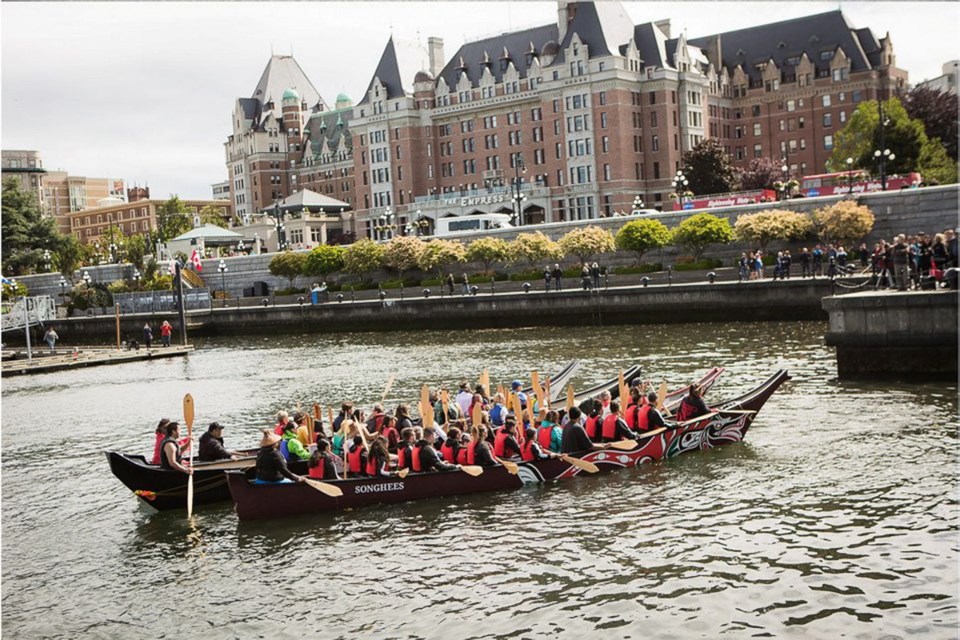If a picture is worth a thousand words, there’s a good bet that three days of colourful cultural overload may have gone a long way to initiating dialogue and building bridges between B.C.’s First Nation communities and the rest of the province.
At least that was one of the hopes of the third annual Aboriginal Cultural Festival, which wrapped up last weekend at the Royal B.C. Museum grounds.
The three-day festival — a partnership between the Esquimalt Nation, Songhees Nation, Aboriginal Tourism B.C., the Royal B.C. Museum, Tourism Victoria, and the Greater Victoria Harbour Authority — drew more than 30,000 visitors and featured more than 30 performances from aboriginal artists from around B.C.
It was designed to showcase the culture and history of First Nations throughout Victoria and the province.
“It really is a celebration of the culture and also to build community relationships and overall awareness of the diversity of aboriginal culture,” said Paula Amos, marketing director for Aboriginal Tourism B.C. “We have 203 different nations in B.C. alone and each have their own languages and culture. You get a nice diverse and different experience with the different groups.”
On top of showcasing the cultures of many of the province’s aboriginal communities — through a series of dances, music, singing, food and an artist’s marketplace — this year the festival also embraced indigenous culture from beyond Canada’s borders.
“For the first time we brought in an international group, the He Waka Kotuia Dancers, a Maori group from New Zealand,” said Amos.
“There is really a lot of interest. A lot of local people who enjoy the festival come every year and bring their friends and we also see a lot of international visitors because of where we are located,” said Amos.
Part of this year’s festival featured Victoria Mayor Lisa Helps announcing the city would be an official city of reconciliation with the Esquimalt and Songhees nations.
Amos said in a year coloured by the Truth and Reconciliation Commission and Canada’s 150th birthday, that kind of thing is poignant, and adds heft to the festival’s message.
“A big part of truth and reconciliation is about building relationships and understanding each other and respecting each other and that has always been at the foundation of our festival,” she said. “The festival has always been reconciliation in action.
“And that is how we see all of aboriginal tourism in general — it’s about building that awareness and relationships and education. Leading up to Canada’s 150th is a good way for us to tell our own stories and share our culture.”



